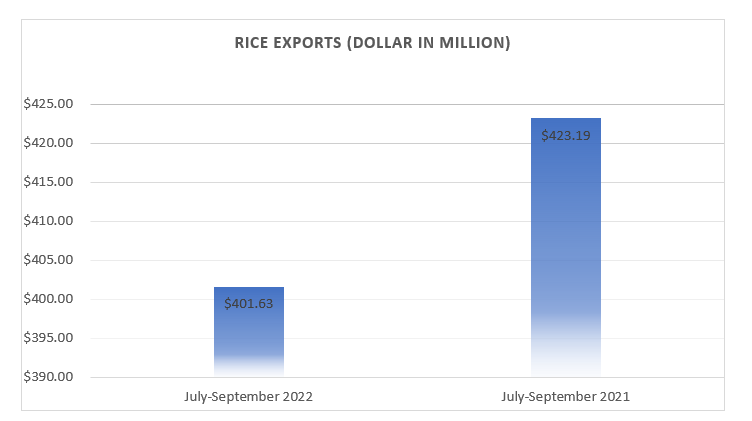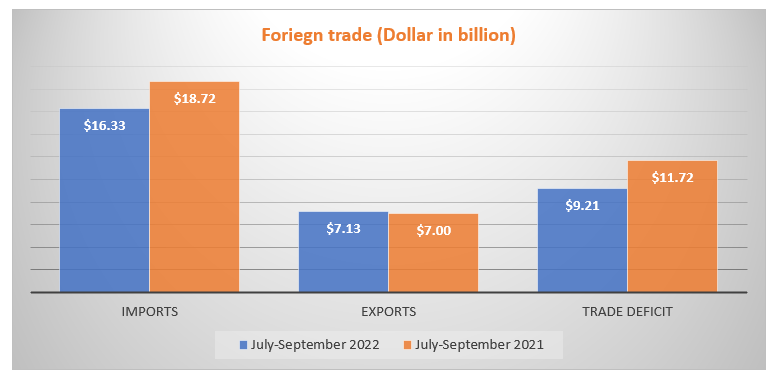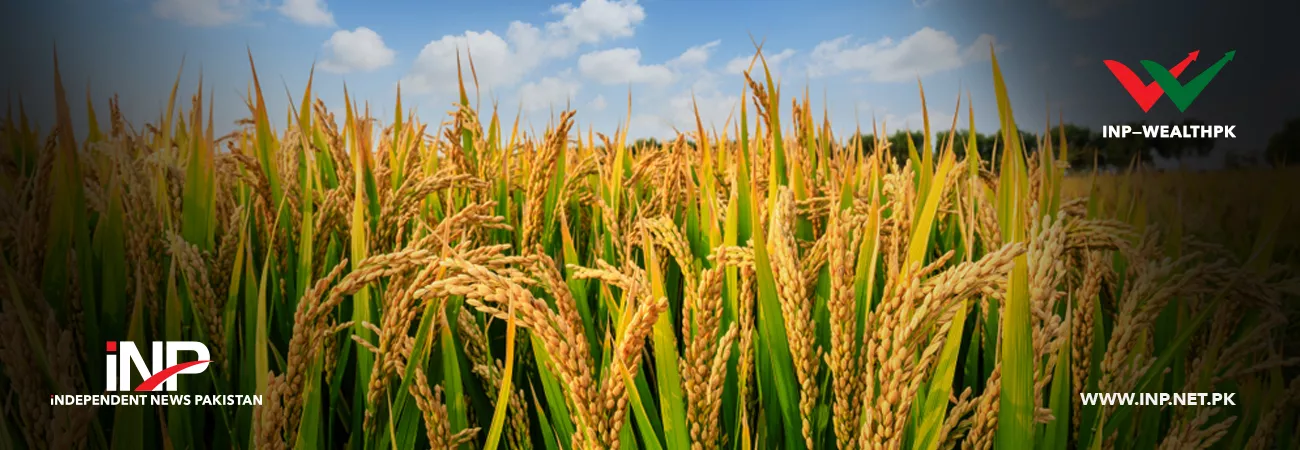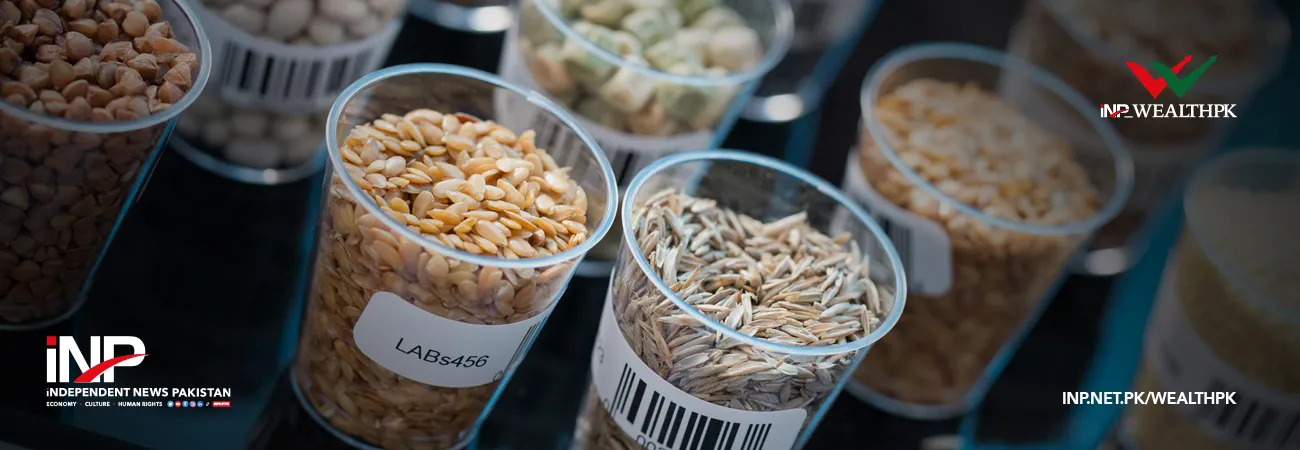INP-WealthPk
Irfan Ahmed
Pakistan’s rice exports witnessed a decrease of 5.10% in the first three months of the current fiscal due to the recent devastating floods in the country, WealthPK reports. According to the data of the Pakistan Bureau of Statistics (PBS), the export volume of rice from Pakistan dipped to $401.629 million in the first quarter of the current fiscal as compared to $423.192 million during the same period of the previous financial year.
Pakistan is facing a shortage of rice due to the recent floods, which led to a decrease in the export of the commodity. The devastating floods have washed away rice crops standing on millions of acres of land in Sindh and Punjab.
The upcoming Rabi season is expected to see a decrease in rice and wheat production as farmers are switching to alternative crops, which will adversely affect the country’s food security.
Pakistan exported 679,779 metric tonnes of rice during the first three months of the current fiscal, showing a decrease of 8.47% as compared to 742,715 metric tonnes during the same period of the previous financial year.
On a year-on-year basis, rice exports decreased by 16.85% and reached $118.852 million in September 2022 as compared to $142.933 million in the corresponding month of last year, according to PBS data.
In September 2022, rice exports dipped by 17.31% to $118.852 million from $143.730 million in August 2022.

Source: PBS website/WealthPK research
The export of basmati rice was recorded at $129.896 million in the first quarter of the current fiscal against $153.671 million in the same period of the previous financial year 2021-22, showing a drop of 15.47%. However, its export increased by 3% on a month-on-month basis to $42.803 million in September 2022 from $41.556 million in August 2022.
On a year-on-year basis, the export of basmati rice decreased by 17.14% to $42.803 million in September 2022 as compared to $51.656 million in September 2021.
The export of other qualities of rice was recorded at $271.733 million in the first three months of the fiscal year 2022-23 against $269.521 million in the corresponding period of the last financial year, showing a growth of 0.82%.
On a month-on-month basis, the export of other qualities of rice was recorded at $76.049 million in September 2022 as compared to $102.174 million in August 2022, showing a decrease of 25.57%.
The country’s total food group exports fetched $1.077 billion in the first quarter of the current fiscal against $1.019 billion in the corresponding period of the previous financial year, showing a growth of 5.70%.
The country’s overall food group exports in September 2022 were $354.816 million as compared to $366.945 million in August 2022, showing a decrease of 3.31%.
On a year-on-year basis, food group exports decreased by 1.26% to $354.816 million in September 2022 from $359.331 million in September 2021.
The country’s overall exports increased by 1.84% and reached $7.125 billion in the first quarter of the current fiscal as compared to $6.996 billion during the same period of the previous year.
On the other hand, imports shrank by 12.72% in the first quarter of the current fiscal and reached $16.334 billion, down from $18.715 billion in the same period the previous year.
The trade deficit of Pakistan shrank by 21.42% to $9.209 billion in the first three months of the current fiscal.

Source: PBS website/WealthPK research
To increase rice production, Pakistan should grant interest-free loans to farmers. Rice is one of the most important crops in the world. Pakistan has the potential to increase rice production to boost exports. Pakistan’s economic growth is mostly reliant on revenue generated from exports. The government needs to devise farmers-friendly policies if it is serious about increasing the export of rice, according to the research conducted by WealthPK.
Credit : Independent News Pakistan-WealthPk













